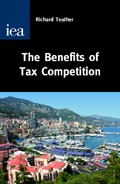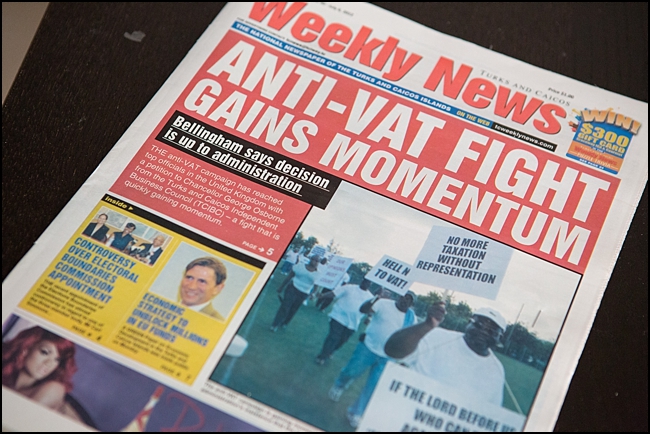Publications & reports
The Benefits of Tax Competition
|
"This monograph is an essential read for all with an interest in tax policy"
The book demonstrates the enormous benefits that come from tax competition, and outlines the current threats to tax competition from the EU and the OECD. It defines the debate on offshore tax centres and the definition of tax competition that it introduced has become the standard. It has sold thousands of copies & downloads, is held in university and government collections across the world, and has been cited in five continents and over ten languages. Institute of Economic Affairs, London, Dec. 2005 (pp165). ISBN 0 255 36569-1 |
VAT and the TCI - an independent appraisal
|
Commissioned by the Turks & Caicos Islands Business Council, this report examined the suitability of VAT to the Turks & Caicos Islands. Its recommendation that VAT was not suitable was supported overwhelmingly by the House of Assembly, adopted by the Cayman government and, after much debate, accepted by the UK government.
This was an important part of the locally-led campaign, supporting the democratically-elected TCI government against the UK's attempt to impose an unsuitable tax. My report was described as "spot on" by the TCI Premier and praised as "research that took the specific context of the islands’ economy into account". The European Union described it as a "key document" of the Islands' tax strategy . PR Weekly said that "Intellectual clout was given to the campaign by commissioning financial academic Richard Teather to write a detailed report rebutting the UK Government’s case for VAT." |
A Question of Substance
|
The increased regulation of offshore finance centres is generally seen as a threat. But a common theme of most of the new rules is an even greater need to provide - and be able to demonstrate - substance.
This is an opportunity for offshore centres; "the more that ‘substance’ is required, and required to be evidenced, the more ‘added value’ that low-tax jurisdictions will need to be able to provide and demonstrate - highly skilled, high value staff with demonstrable expertise and qualifications" |
The Cayman Islands - a balanced budget
|
Commissioned by the Cayman Islands Financial Services Association, this report challenged the proposal to introduce direct taxes to the Cayman Islands.
After a long campaign its conclusion, that income taxes would damage employment opportunities for Islanders, was accepted by the government and the proposal for new taxes was dropped. |
The Politics of EU Harmonisation
|
Written for a conference of the Friedrich Naumann Foundation in Germany, this paper examines - and criticises - the growing influence of multi-national bodies on national tax systems.
In particular it shows how the growing influence of the EU on national tax policies is spreading bad practice across Europe and destroying the prospects of tens of millions of unemployed youth. (the picture shows the conference venue in 1945, when it was President Truman's temporary home ) |
Tax and Theology
|
A study into religious thought, Christian theology and taxation, published by the Acton Institute in their Journal of Markets and Morality.
It finds that a Christian ethos does not require higher taxes; there are alternative (and, arguably, better) ways to help our neighbour. Nor is legal tax planning moral; the Christian duty to taxes is to obey the law as it stands, and that means tax laws as interpreted by the courts, not what campaigners might like tax law to be. |
How tax havens help the poor
|
Far from tax havens being about the "rich hiding their wealth", they are actually an engine of development and growth.
By providing investment, they create opportunities and more productive, better paid and more secure jobs. "Tax competition is a beneficial force, which creates jobs and boosts wages. Thus the greatest beneficiaries will not be the wealthy capitalists, but rather the workers." |
Locking in high tax rates
The Null MP
|
In most constituencies, more people abstained than voted for the winning candidate.
In effect, the abstainers won, the candidates' policies were all rejected, but the constituency had one of those rejected candidates imposed on them. That seems unfair; perhaps we should actually let the abstainers win? A "Null MP" would vote against all the policies the electorate have rejected. It is a bizarre notion, but this article looks at how widespread this rejection of all the candidates is, explores how we could deal with it, and uses the "Null MP" as a way to explore the concept of political consent. |








